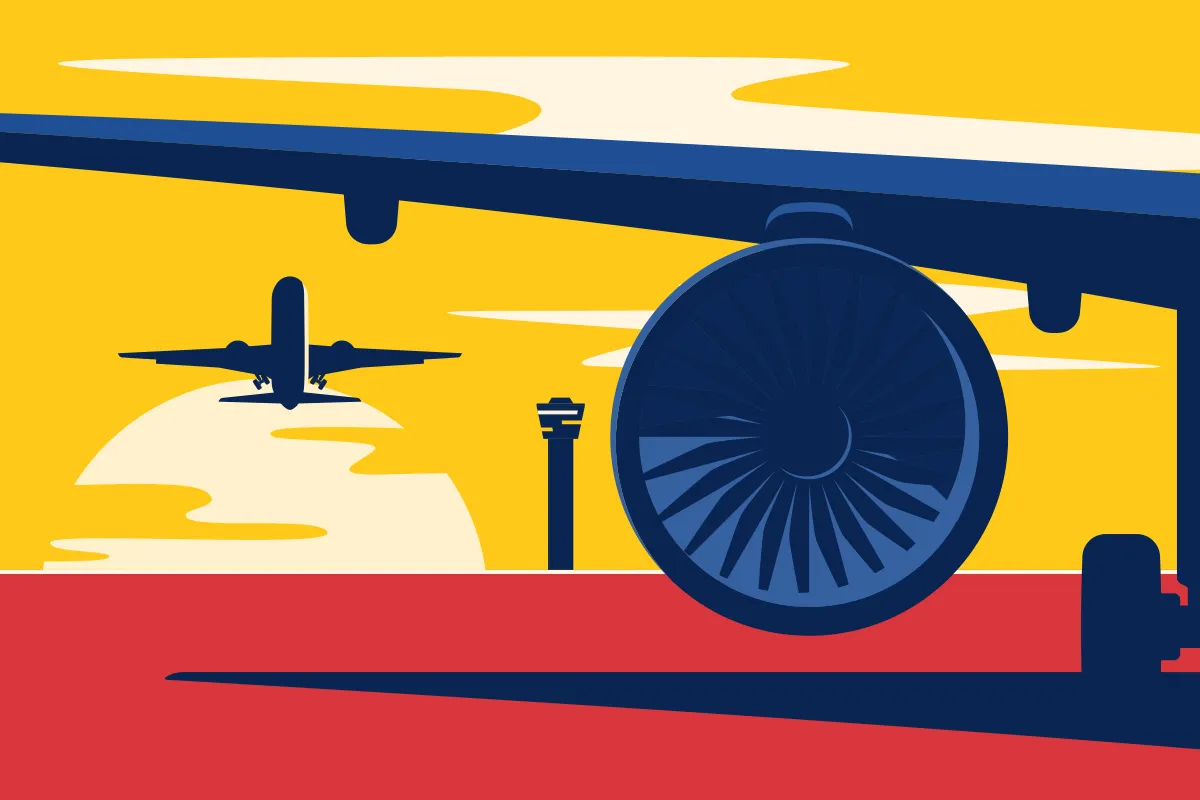As the travel industry continues to stabilize in the post-pandemic era, airline carriers face a myriad of new challenges ranging from climate change to geopolitical conflicts, to name a few. And with mounting pressures stemming from a surge in demand, both airline and insurance carriers are coming to terms with the implications of being back in business—namely, in the form of rising insurance claims.
In this article, we’ll zoom in on some of these formidable challenges and explore ways that an integrated risk management (IRM) software platform with straight-through processing (STP) can help airline and insurance carriers reduce claim costs and expenses.
Tightening Airline Budgets, Skyrocketing Claims
Airlines face formidable operational challenges in the years and decades ahead, both in the long-tail repercussions of the pandemic to industry-wide efforts to address decarbonization mandates and climate legislation. These forces and resulting financial constraints are causing carriers to adopt increasingly strict austerity measures.
The barrage of travelers back in full swing and ongoing hiring challenges has also led to a spike in baggage claims. According to a recent report by the US Department of Transportation, U.S. airlines lost, damaged, or delayed over 220,000 checked bags in April 2022—a 135% increase from the prior year. From the insurer's perspective, the picture is no less bleak: lost baggage claims shot up 30% amid travel chaos this summer compared with pre-pandemic times, according to Spanish insurer Mapfre SA. Additionally, 2022’s summer travel chaos has resulted in more passengers making claims about lost luggage, with lost baggage claims increasing by 30% in the summer of 2023, compared with 2019.
Claims Automation Challenges
Claims volumes have increased across the board, not just in baggage claims. Airline workers' compensation claims are also at a high—another function of the post-pandemic travel surge; an increase in baggage has led to a rise in injuries caused by handling heavy, large, or odd-shaped baggage, handling uneven loads, or bending and twisting while loading luggage. In fact, according to the Flight Safety Foundation, the airline industry is among the most hazardous. For these workers, injuries can happen anywhere: in the terminal, on the plane, on the runway, in the air, for any number of reasons.
Airlines’ losses resulting from missing or damaged baggage claims are therefore just one side of the coin; a spike in baggage volumes has also resulted in increased worker’s compensation claims. Unfortunately, existing IRM solutions are unable to support claims automation, have laborious workflows/processes, and lack user-driven business rules. This makes any existing IRM solution just an additional source of complexity and management overhead. And a shortage of experienced adjusters and cost rationalization issues mixed with increasing claim volumes have resulted in further increased claims costs.
Benefits for Airlines and Insurers
With the frequency of claims on the rise, airline, and insurance carriers require a more agile, streamlined approach to claims handling and processing. STP enables firms to accelerate claims transaction processing times while doing away with manual processes and human intervention. Modern Integrated Risk Management Software platforms like Ventiv’s solution can streamline the claims workflow process and serve as a single source of truth across the insurance claims process.
By using a STP predictive analytics model the Ventiv solutions allows low-complexity claims (e.g., baggage claims) to be auto-adjudicated, freeing up adjusters to handle more complex cases. The solution offers configurable workflows to support business processes without the need for manual intervention, as well as business rules coupled with analytic models for early intervention on potentially high-severity claims. Auto claim assignments can be configured to assign claims based on client-driven rules.
Ventiv’s solution also decreases claims costs and expenses by surfacing the risk of litigation early on. Lawyers are expensive, and claims handled outside of litigation can be resolved far more cost-effectively; in fact, it’s estimated that litigation claims cost at least four times greater than non-litigated claims. Many airlines handle litigated claims in-house rather than via a TPA, and therefore bear the cost and overhead of managing these cases. An IRM solution like Ventiv’s platform offers advanced analytics and predictive modeling for analyzing all claims data, whether structured or unstructured. This allows firms to mitigate the severity of claims by identifying cases likely to result in attorney involvement.
Reducing Airlines’ Claims Costs and Expenses by 20%
By reducing the time it takes to process claims, IRM software like Ventiv’s solution enables airlines to lower claims costs. And with STP implemented for low-complexity claims, firms stand to reduce airline claims costs and expenses by 20%, amounting to over $100,000 per year for every 5000 claims processed. Last but not least, with the claims workflow automated, claim adjusters are empowered to reach new productivity levels and focus on high-value, strategic tasks for the firm.
Schedule a demo today to learn more about how Ventiv’s IRM software helps airline and insurance enterprises streamline their workflows and reduce claims costs and expenses.











